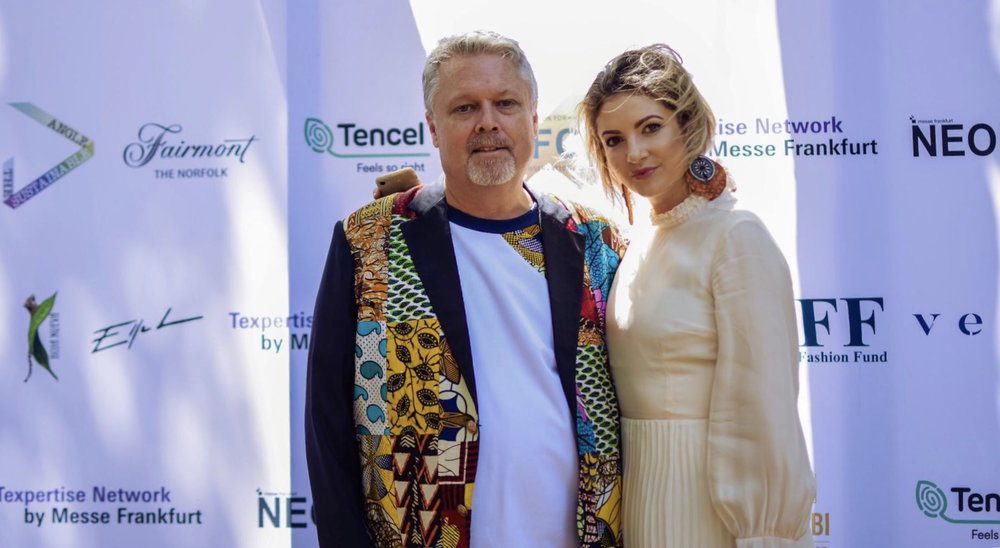Summary
Michael Stanley-Jones is a member of the UNEP Ecosystem Integration Branch and Secretariat of the United Nations Alliance for Sustainable Fashion.
Biography
Michael Stanley Jones serves in the UN Environment Programme’s Ecosystems Integration Branch with UNDP−UNEP Poverty-Environment Action for Sustainable Development Goals (2018-2022) based in Nairobi. As outgoing co-Secretary and a founder of the UN Alliance for Sustainable Fashion (July 201-September 2020), Michael Stanley-Jones has advocated for engagement with the textile and apparel industries on the 2030 Agenda for Sustainable Development. From 2009 to 2014, Michael Stanley Jones served as Public Information Officer and Press Liaison with the Secretariat of the Basel, Rotterdam and Stockholm Conventions, the three leading global treaties addressing hazardous chemicals and wastes. Michael Stanley-Jones served with the UN Economic Commission for Europe in the Secretariat of the Convention on Access to Information, Public Participation in Decision-making and Access to Justice in Environmental Matters (Aarhus Convention 1998) from 2004 to 2009. Michael Stanley-Jones worked to bring the Kiev Protocol on Pollutant Release and Transfer Registers (2003) into force and managed the Aarhus Clearinghouse for Environmental Democracy.
Outside the United Nations, Michael Stanley-Jones has served in academia, business, civil society and the public sector. In 1993-1994, he assisted the 10-nation Danube Environmental Forum with negotiation of the Danube River Protection Convention (1994). As chair of the Santa Clara Basin Watershed Management Initiative in 2001-2003, he developed Silicon Valley California region’s watershed management plan and historic pollution prevention plans for copper, nickel and mercury contamination of the San Francisco Estuary. The Initiative established the Emerging Contaminants Work Group, now affiliated with the San Francisco Estuary Institute.
Michael holds a B.A. in Government from San Jose State University (California State University) and a Master of Arts of Politics from The Claremont Graduate University in Claremont, California. His passions include comedy, nature and poetry.
Vision
In a recent interview with Dinis Guarda, Michael Stanley-Jones said:
“And I found out that there were what the US called Superfund sites right where my children went to school, and I told myself I had to do something about it. So from there I started to work with United States-based organisations and international organisations too, which ended up supporting the UN’s Aarhus Convention”.
“I was an angry parent who used technology to map these toxic hotspots. And use other databases to understand how these were produced and which companies did it. And then used the internet and digital mapping so everybody could see it”.
“Most of the poorest people in the world are heavily dependent on natural resources: fisheries, agriculture, forests etc. That natural capital is decaying, making the poverty challenge much harder. So that is what the UNDP−UNEP Poverty-Environment Action for Sustainable Development Goals is all about, we want to help governments up their game in natural resource management, in order to eliminate poverty”.
Are we achieving those goals? “Not as much as we hoped unfortunately. We are behind schedule and this pandemic has made things even more difficult. We need to redouble our efforts to achieve those goals. In my view, we have a lot of work to do. For example, we have to feed more people than ever, and we have to do it efficiently and it has to be sustainable looking to the future. That idea of being mindful of the future is what I think is at the core of the SDGs”.
“From the UN perspective, COVID-19 pandemic’s newest factor is digital transformation: big data, observation, new ways of captivating them. Digital is coming on strongly within the UN system. How does that provide opportunity? Under COVID-19, we saw fashion companies with no online presence have really suffered and even shut”.
“Thus the focus on digitalisation is the future, and that will radically change the labour force, we won’t over-produce, and eventually toss away clothes and stock what we did not want and never sold. In that sense, we will see a pluralisation of value chains, from the market to the consumer household. We are going to squeeze out all these inefficiencies”.
References
https://www.linkedin.com/in/michael-stanley-jones-b3429014/
https://www.beljacobs.com/changemakers-xx/michael-stanley-jones-the-un-alliance-for-sustainable-fashion
https://www.unpei.org/staff-bios/
https://unfashionalliance.org/contact-us/
https://www.researchgate.net/profile/Michael_Stanley-Jones
https://pea4sdgs.org/knowledge/pea-publications/reward-and-renewal-undp-un-environment-poverty-environment-initiative-phase-2-final-progress-report-2014-2018
https://link.springer.com/article/10.1007/s11625-019-00708-6





